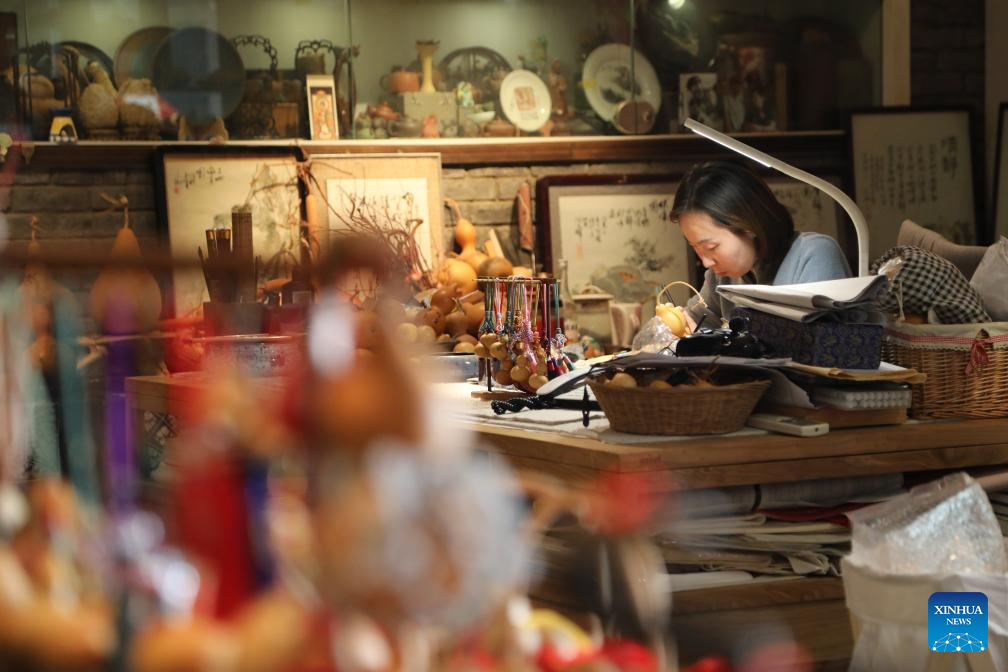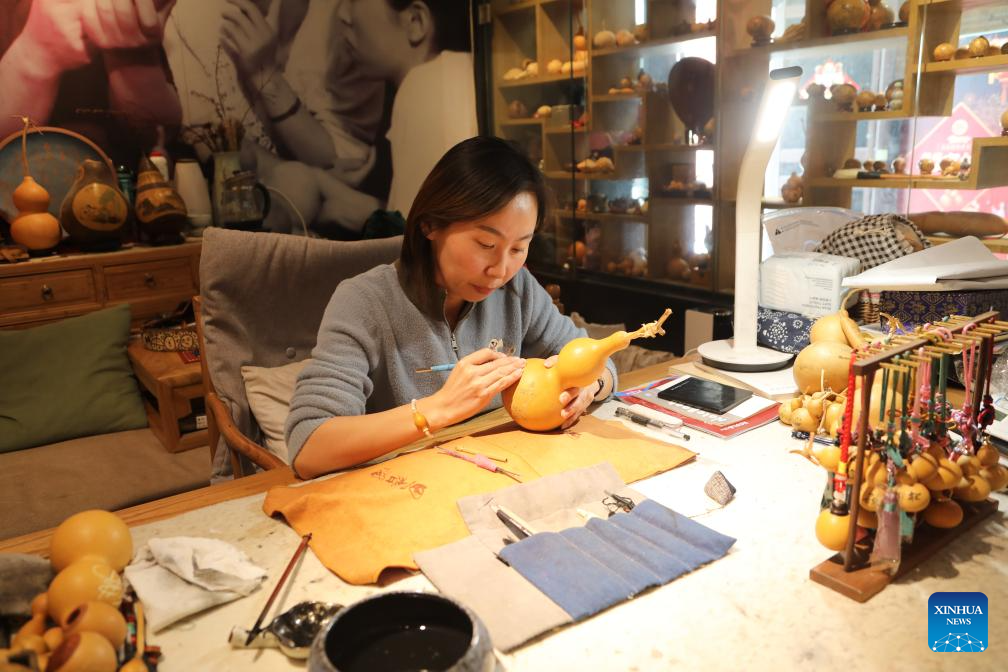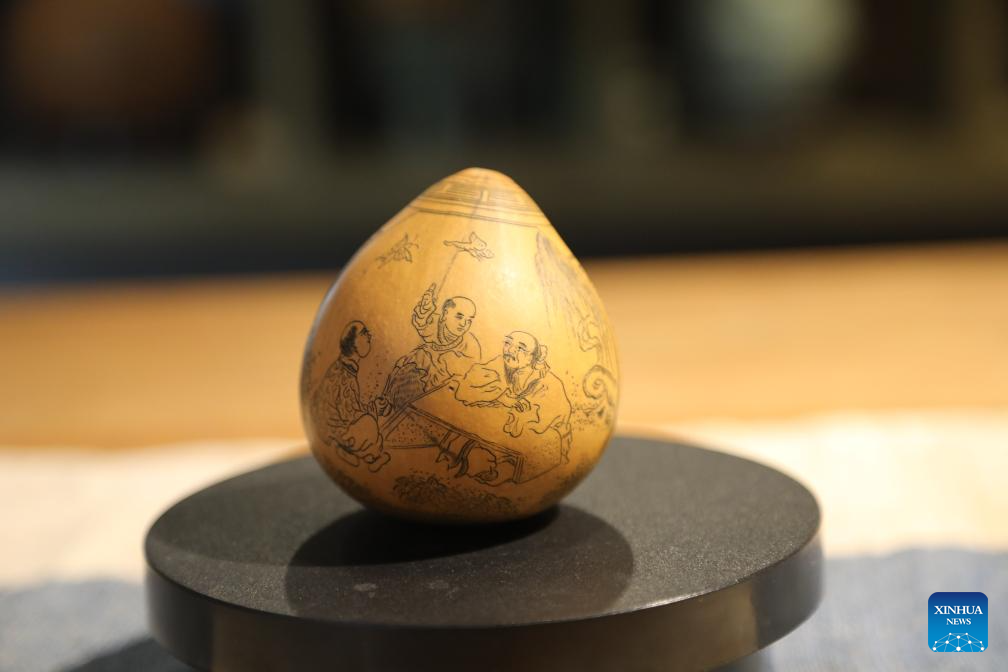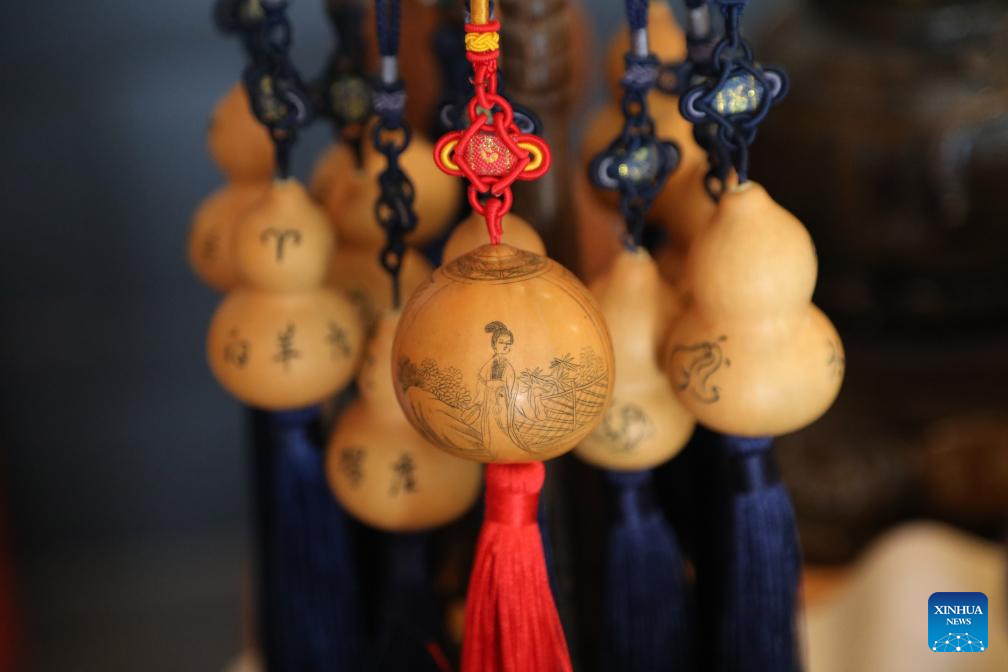
Ruan Xiyue, an artisan of Lanzhou gourd carving, carves a gourd at a studio in Lanzhou, northwest China's Gansu Province, May 11, 2024.(Xinhua/Ma Sha)
LANZHOU, Sept. 3 (Xinhua) -- Under the soft glow of a lamp, 37-year-old Ruan Xiyue meticulously wields her carving knife, etching a child's face onto an egg gourd with masterful precision.
With each stroke, the artisan clears away the shavings, ensuring that every detail is a faithful rendition of her initial sketch.
Carving is a particularly esteemed art in Lanzhou, capital of northwest China's Gansu Province, where the technique has flourished for over a millennium.
Favoring the tender, thin-skinned egg gourds native to the region, the art form demands such finesse that the slightest misstep can mar the entire piece.
Born in 1987, Ruan has spent over a decade perfecting her craft, a legacy passed down through four generations of her family, spanning more than 80 years. The years of dedicated carving have toughened her right hand, making it larger and rougher than her left -- a testament to her commitment to the art.
The roots of Lanzhou's gourd carving stretch back to the Wei and Jin dynasties (220-420), with gourds serving as vessels for wine along the ancient Silk Road. Over time, the simple act of painting evolved into the intricate craft of engraving and painting, becoming a livelihood for artisans during the Ming and Qing dynasties (1368-1911).
Micro-carving, especially on the diminutive, egg-sized local gourds, represents the pinnacle of Lanzhou's gourd carving skill. Yet, unlike her ancestors who favored complexity, Ruan prefers the simplicity of sketches, reflecting her unique style and cultural heritage philosophy.
"To truly preserve and invigorate traditional techniques, they must be integrated into everyday life, allowing people to enjoy their favorite art in their homes, not just in galleries," she explained.
Initially, Ruan grappled with the weight of her family's artistic legacy, but the popularity of the game "Travel Frog" among young people inspired her to create a utopian world with the frog's image, boosting her confidence.
"Today's youth are unique, interpreting traditional works through their own lens, which leaves room for personal imagination," she said.
Using gourds as a canvas, Ruan has gradually infused her work with elements from animation, cultural relics and other creative products, crafting gourd mirrors, accessories, tea canisters, bags and more.
As culture becomes a part of daily life and gains public appreciation, an increasing number of people are learning Lanzhou gourd carving from Ruan. Since the beginning of this year, she has welcomed over 1,000 visitors per week for study tours.
Ruan said that many children, upon discovering gourd carving, exclaim with genuine awe, "No wonder this is an intangible cultural heritage," a sentiment that deeply moves her.
Inspired by Ruan Xiyue, her retired mother, Ruan Lin, is now learning to use social media to connect with the younger generation and provide technical guidance for her daughter's projects.
"Culture is a collective endeavor. When many hands come together, the flame of culture burns brighter," said Ruan Lin. ■

Ruan Xiyue, an artisan of Lanzhou gourd carving, carves a gourd at a studio in Lanzhou, northwest China's Gansu Province, May 11, 2024.(Xinhua/Ma Sha)

A Lanzhou gourd carving work is pictured at a studio in Lanzhou, northwest China's Gansu Province, May 11, 2024.(Xinhua/Ma Sha)

Lanzhou gourd carving works are pictured at a studio in Lanzhou, northwest China's Gansu Province, May 11, 2024.(Xinhua/Ma Sha)



